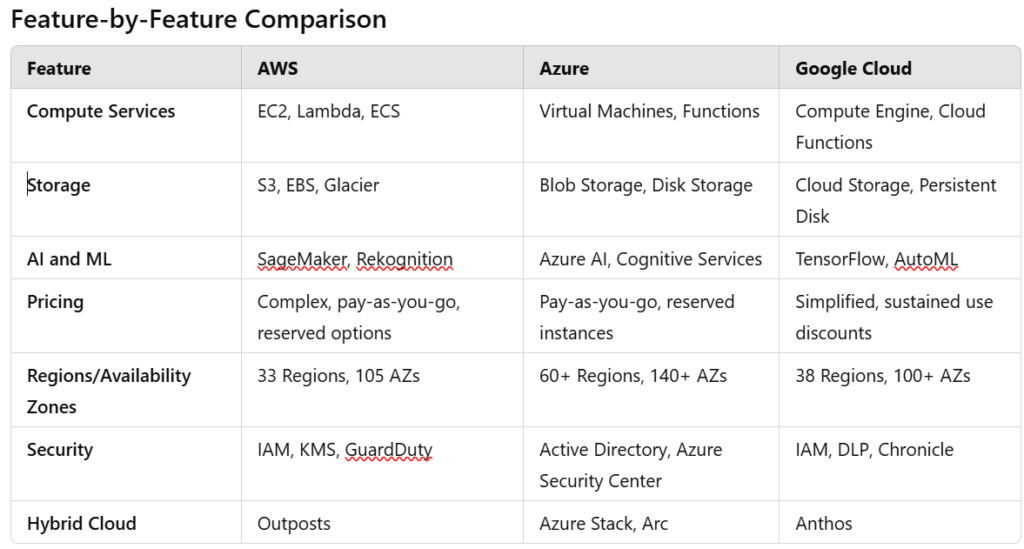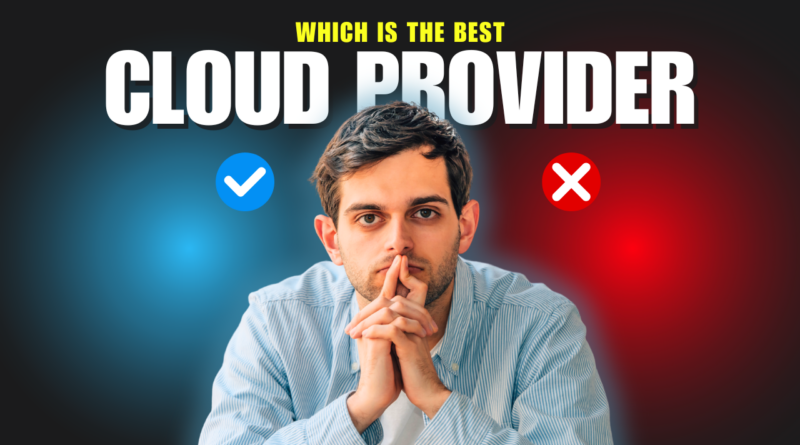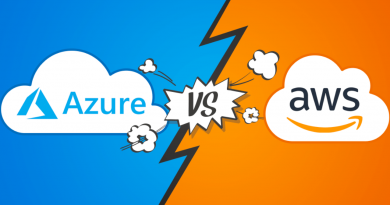How to Choose the Right Cloud Service Provider | Cloud Providers Comparison
How to Choose the Right Cloud Service Provider
How to Choose the Right Cloud Service Provider: A Comprehensive Comparison
🚨 The Cloud Wars Are Heating Up! 🚨
Who will reign supreme in 2025 – AWS, Azure, or Google Cloud? The answer could save (or cost) your business thousands. Don’t make the wrong choice
As cloud computing becomes the backbone of digital transformation, choosing the right cloud service provider (CSP) is critical to the success of businesses of all sizes. With a plethora of options available, understanding the strengths, weaknesses, and unique offerings of each provider is essential to make an informed decision.
Furthermore, I am going to provide an in-depth comparison of the leading cloud service providers, including Amazon Web Services (AWS), Microsoft Azure, and Google Cloud Platform (GCP).
AWS (Amazon Web Services) continues to dominate the cloud market, and organizations are increasingly looking for experts who can troubleshoot issues, optimize cloud systems, and ensure seamless performance for users and businesses.
Key Factors to Consider When Choosing a Cloud Provider
So, How to Choose the Right Cloud Service Provider has the following considerations.
- Pricing and Cost Management
- Service Offerings and Features
- Performance and Reliability
- Security and Compliance
- Global Reach and Availability Zones
- Ease of Use and Integration
- Support and Community
In short, AWS Cloud Support Engineers act as the primary technical point of contact for AWS customers, providing solutions to both basic and advanced cloud issues.
The Big Three: AWS, Azure, and Google Cloud
Before diving into the details, let’s take a moment to explore AWS, the pioneer of cloud services, dominates the market with a vast array of services and global reach.
Strengths:
- Extensive Service Portfolio: Over 200 fully featured services, including compute, storage, databases, AI/ML, IoT, and more.
- Global Network: AWS operates in 33 regions and 105 availability zones (as of 2025).
- Scalability and Flexibility: Ideal for businesses of all sizes with on-demand pricing and various purchasing options.
- Mature Ecosystem: Large marketplace, partner network, and extensive third-party integrations.
Weaknesses:
Complex Pricing: AWS pricing models can be difficult to decipher, often resulting in higher-than-expected costs.
Steep Learning Curve: The breadth of services and configurations can be overwhelming for beginners.
Best For: Enterprises, startups scaling rapidly, and industries requiring a diverse range of services.
Microsoft Azure
Strengths:
Hybrid Cloud Leader: Azure excels in hybrid cloud scenarios, allowing seamless integration with on-premises data centers.
Enterprise-Friendly: Strong presence in the enterprise market with tools like Active Directory, SQL Server, and Office 365.
Security and Compliance: Extensive compliance certifications and robust security frameworks.
AI and Analytics: Azure offers a rich set of AI and analytics tools.
Weaknesses:
Downtime Issues: Azure has experienced periodic outages.
Complex Management Tools: Some users find Azure’s interface less intuitive compared to competitors.
Best For: Large enterprises, hybrid cloud deployments, and organizations using Microsoft services.
Furthermore, AWS certifications are a crucial part of becoming an AWS Cloud Support Engineer. They provide credibility and demonstrate your technical proficiency in AWS services. Here are the certifications that can help you on your journey:
The AWS Certified Solutions Architect – Associate: Ideal for understanding how to design and deploy scalable systems on The next certification is AWS Certified SysOps Administrator – Associate: Perfect for those looking to become cloud administrators.
Lastly, the AWS Certified Developer – Associate: Helps with learning AWS development tools and processes.
Google Cloud Platform (GCP)
Strengths:
Data and AI Leadership: GCP’s AI and analytics tools are best-in-class, including BigQuery, TensorFlow, and AutoML.
Competitive Pricing: Often cheaper than AWS and Azure, especially for compute and storage.
Open-Source Commitment: GCP supports open-source technologies and Kubernetes (developed by Google).
Network Performance: GCP boasts one of the fastest and most reliable global networks.
Weaknesses:
Smaller Service Portfolio: Fewer services compared to AWS and Azure.
Limited Enterprise Adoption: GCP trails behind AWS and Azure in enterprise market share.
Best For: Data-driven companies, startups, and AI/ML-heavy workloads.

Conclusion: Which Provider is Right for You?
Furthermore, Choose AWS if you need the broadest range of services, scalability, and a mature ecosystem. AWS remains the top choice for businesses requiring diverse and comprehensive cloud solutions.
Choose Azure if your organization already relies on Microsoft products or requires hybrid cloud solutions. Azure stands out in hybrid environments and enterprise integration.
Choose GCP if your focus is on data analytics, AI, or cost-effective computing. GCP is excellent for innovation and cutting-edge data projects.
Top Recommendation:
AWS leads as the most comprehensive and globally adopted cloud provider, making it the top recommendation for most organizations. However, Azure and GCP offer strong alternatives depending on specific use cases and enterprise needs.
Ultimately, the right cloud provider depends on your specific needs, budget, and existing infrastructure. Consider conducting a pilot project or using multi-cloud strategies to maximize the strengths of each platform.
For more tips on creating an impactful resume, check out this article on Claydesk.
Above all, Additional Resources to Help You Along the Way
- AWS Documentation: The official AWS documentation is an invaluable resource when learning about specific AWS services.
- AWS Well-Architected Framework: Learn about AWS best practices and architectural patterns for building efficient and secure systems.
- Claydesk AWS Blog: For a deeper understanding of AWS-related topics, check out the AWS articles on Claydesk.
Conclusion
By gaining hands-on experience, obtaining AWS certifications, building problem-solving and customer service skills, and staying updated with the latest AWS services, you will be well on your way to a successful career in cloud computing.
It is vital to learn how ot become and AWS Cloud Support Engineer, andgain valuable skills.
Many AWS Cloud Support Engineer roles offer remote working options, providing flexibility in terms of work location and work-life balance.
Want to learn web development? The Web Developer Bootcamp course by ClayDesk can be a great asset for your learning journey.





